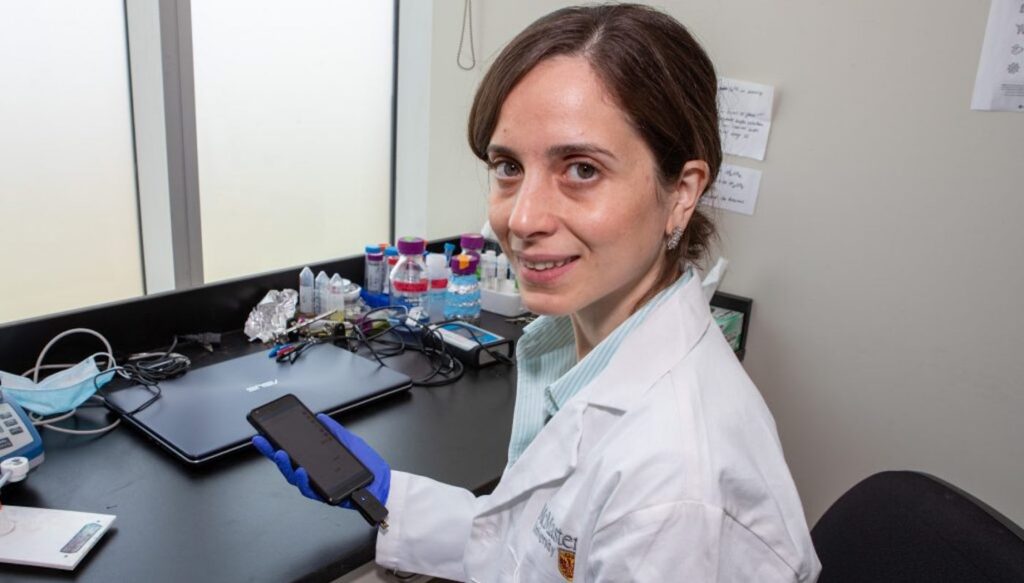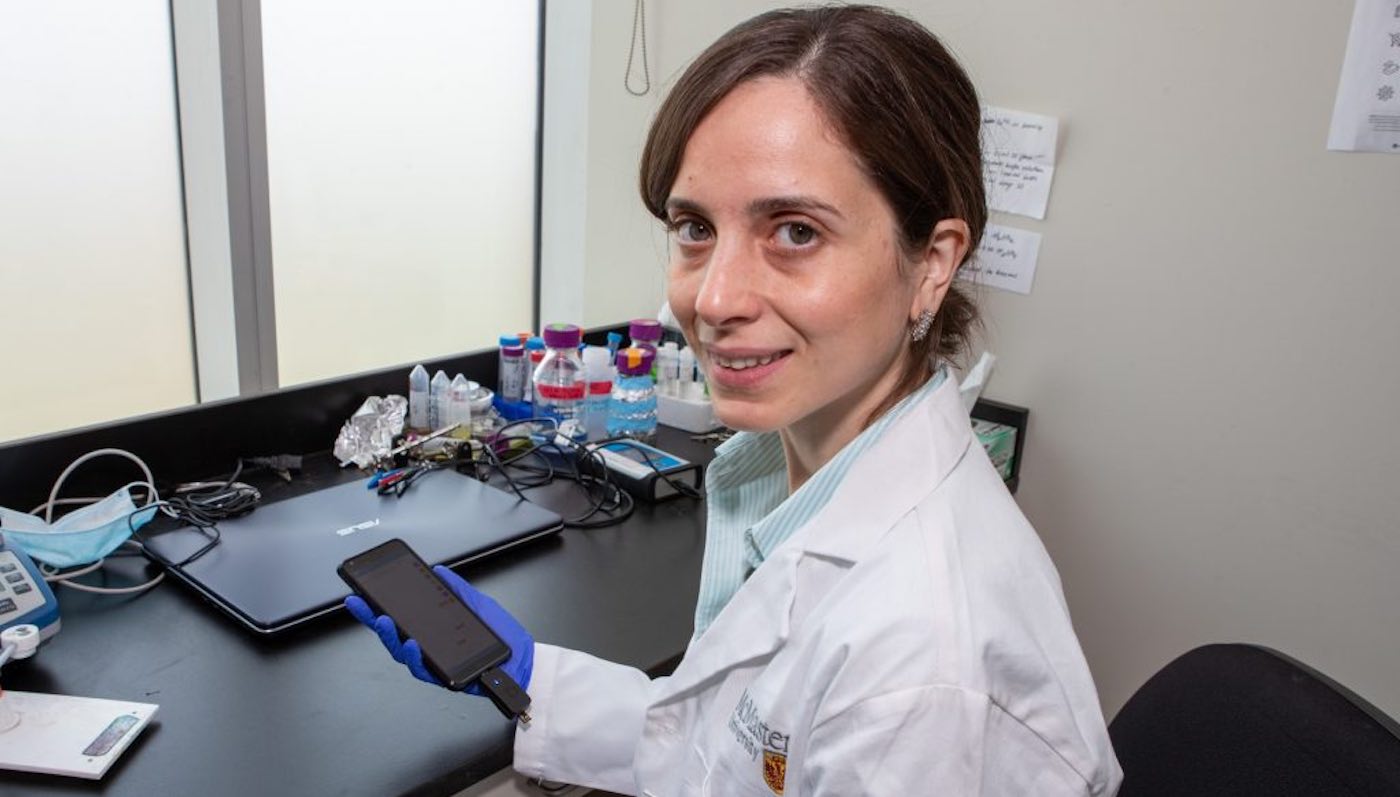Scientists from two universities in Ontario, Canada reported progress on their efforts to release the world’s first hand-held home test kit designed to screen for cancer.

A home-based screening kit for different kinds of cancers would be game-changing in the quest for more proactive health monitoring. To this end, researchers from McMaster and Brock universities are developing a device that lets patients monitor their own blood for the unique biomarkers of prostate cancer.
The device works much like the monitors that people with diabetes use to test their blood-sugar levels.
RELATED: First-of-its-Kind Blood Test Can Detect Over 50 Kinds of Cancer—Often Before Symptoms Even Show
Normally, when patients submit blood samples to a lab, doctors will look for specific biomarkers that indicate signs that a cancer may be present. These biomarkers are chemicals within the body that can indicate either normal or abnormal conditions if they are over- or under-represented in a blood sample.
A biomarker for prostate cancer, for example, can be the presence of a chemical called prostate-specific antigen (PSA). Abnormally high levels of this antigen are an indicator for medical practitioners that prostate cancer may be developing in the patient’s body. Blood samples taken in the early stages to find high levels of PSA can therefore provide patients with a chance to treat the cancer more quickly, leading to better outcomes.
The device developed at McMaster and Brock allows users to mix a droplet of their blood into a vial containing a reactive liquid prepared by the lab. Users then place that mixture onto a strip and insert it into the device’s reader system. Then, after only a few minutes, the device measures for the presence of PSA and informs the user about the degree to which cancer may be present.
RELATED: Accidental Discovery of New T-Cell Hailed as Major Breakthrough for ‘Universal’ Cancer Therapy
If users can complete a test like this from the comfort of their own home—avoiding a trip to the doctor’s office—more people could be checking their own health, and possibly detect disease at an earlier stage. It would also cut down on the number of times patients need to leave home to provide blood samples, once they’ve been diagnose.
Leyla Soleymani, a biomedical engineer at McMaster, and Canada Research Chair in Miniaturized Biomedical Devices, led the team responsible for the hardware of the device, including the chip that reads the sample.
“This is another step toward truly personalized medicine,” she said in a McMaster’s statement. “We’re getting away from centralized, lab-based equipment for this kind of testing.”
Researchers also point out that this technology can be readily adapted to measure other markers, depending on the form of cancer or other chronic disease. The device would also allow patients to continue to monitor their health after treatment.
MORE: Scientists Discover Molecule That Triggers Self-Destruction of Pancreatic Cancer Cells
Future devices could reasonably search for additional biomarkers indicating the abnormal conditions of other cancer types. The team also believes that the technology can be readily adapted to measure indicators of other chronic diseases besides cancer. Many diseases can be identified, as the team phrased it in their proof-of-concept academic publication, using a “bio-barcode” approach.
More testing beyond their proof-of-concept study will be required before the team can pursue commercial applications. But the development would be a large leap forward increasing the accessibility of proactive, personalized, home-based health monitoring.
SHARE the Science With Friends on Social Media…




















